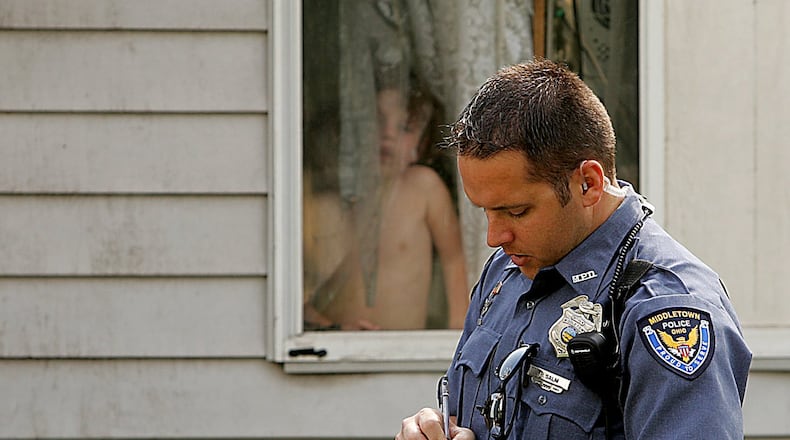A Columbus lawmaker wants to fix that, and has proposed a bill that would require law enforcement officers to be designated as mandated reporters as well.
INVESTIGATION: Who is protecting our children? Adults with a history of abuse have killed hundreds of Ohio kids
“I was shocked and saddened to learn that Ohio was the only remaining state not to have law enforcement listed as mandated reporters of child abuse and neglect,” State Rep. Bernadine Kennedy Kent, D-Columbus said.
She began looking at the issue after learning of a Columbus family with five children that police had visited dozens of times for domestic violence incidents. Despite the children being exposed to repeated violence, police officers never referred the case to children services to check on their well-being, Kent said.
As a former teacher, she felt police officers should have to report these situations like she would have been required to do as a mandated reporter.
The proposed law would require law enforcement officers to contact the local children services agency if they know, or have reasonable cause to suspect, that a child has incurred abuse or neglect or faces a threat of it.
“It’s really a chance to have an early warning,” she said, of more professionals being on the lookout for possible child abuse.
The Ohio House unanimously passed HB 137 earlier this month and the bill now goes to the Senate for consideration.
RELATED: Newspaper’s stories of child deaths prompt calls for reform
In a package of articles last month, this newspaper revealed cracks in Ohio’s system for protecting children. The newspaper’s investigation showed how some children had suffered painful deaths just days or weeks after being reunited with their birth parents. Other tragic outcomes were tied to a lack of oversight by child protection agencies that are overwhelmed with cases because of the opioid epidemic.
Many police departments already have policies that require police officers to refer suspected abuse cases to children services and others do it out of practice without written policies. Police officers in the Dayton region coordinate their criminal investigations with children services cases through Care House at Dayton Children’s Hospital.
"We already do this," Dayton Police spokeswoman Cara Zinski-Neace said. The department's policy includes calling Montgomery County Children Services when a child endangering or other crime report is filed and consulting with that agency before removing a child from their home.
“We have a pretty good relationship with law enforcement in our community, although they are not mandated reporters,” said Jennie Cole, intake manager for Montgomery County Children Services. “We do work hand in hand, and they are often times our eyes and ears out there. We fully support this legislation because it just makes sense given their many contacts in the community.”
The proposed law closes the loop of communication, said Clark County Deputy Director for Children Services Pamela Meermans.
“If you are currently a mandated reporter, you have a choice, ” she said, to contact children services directly or to contact police. “Law enforcement then in turn needs to inform children services. That is not universally done in all jurisdictions.”
About the Author
